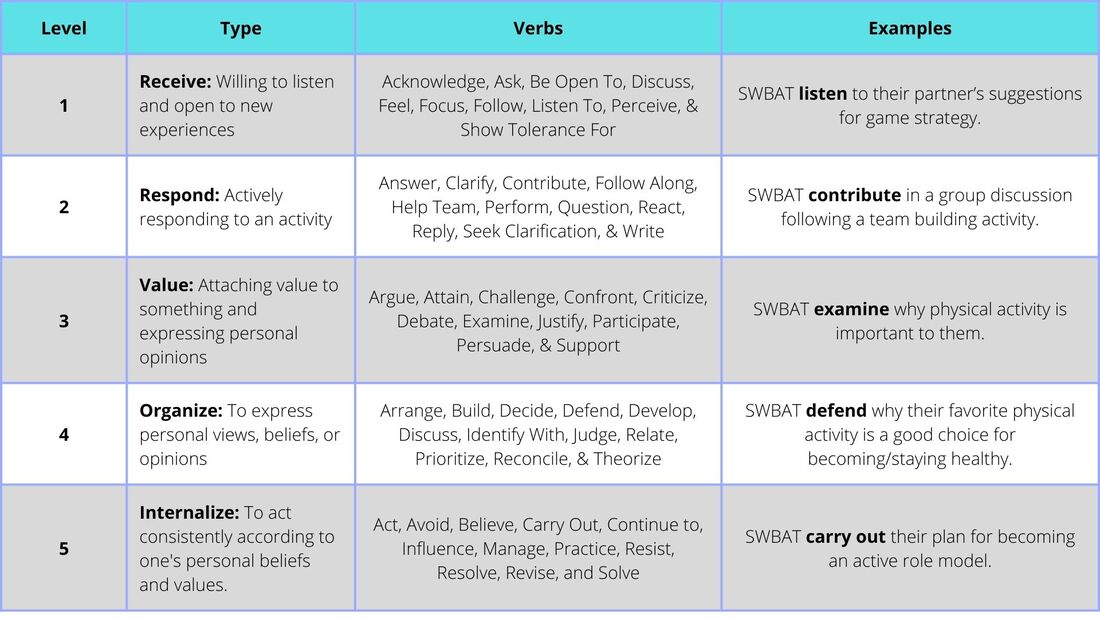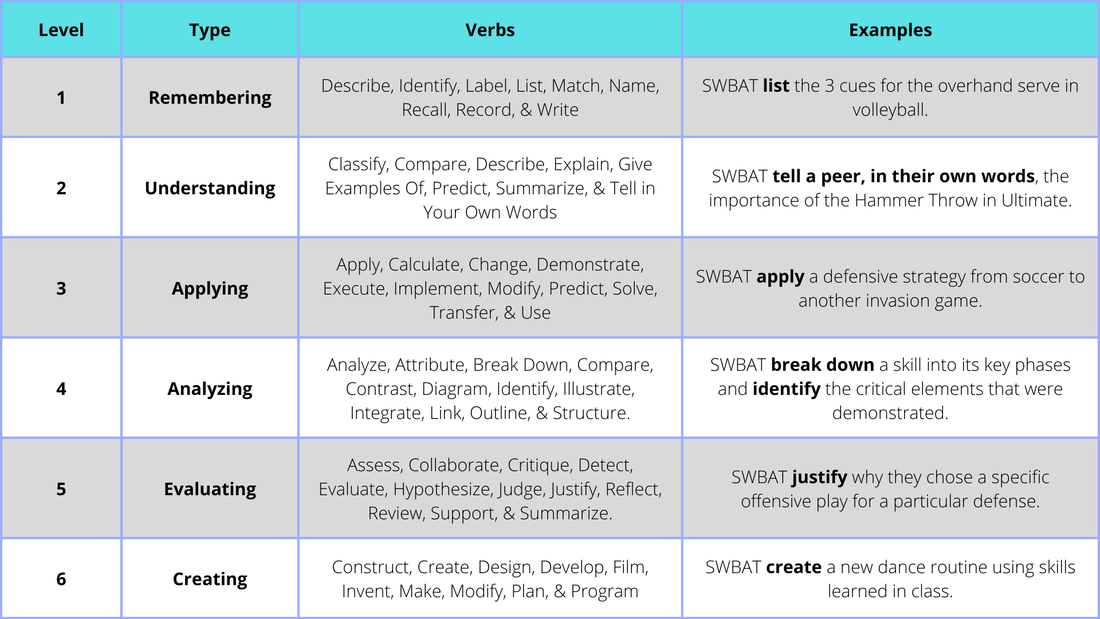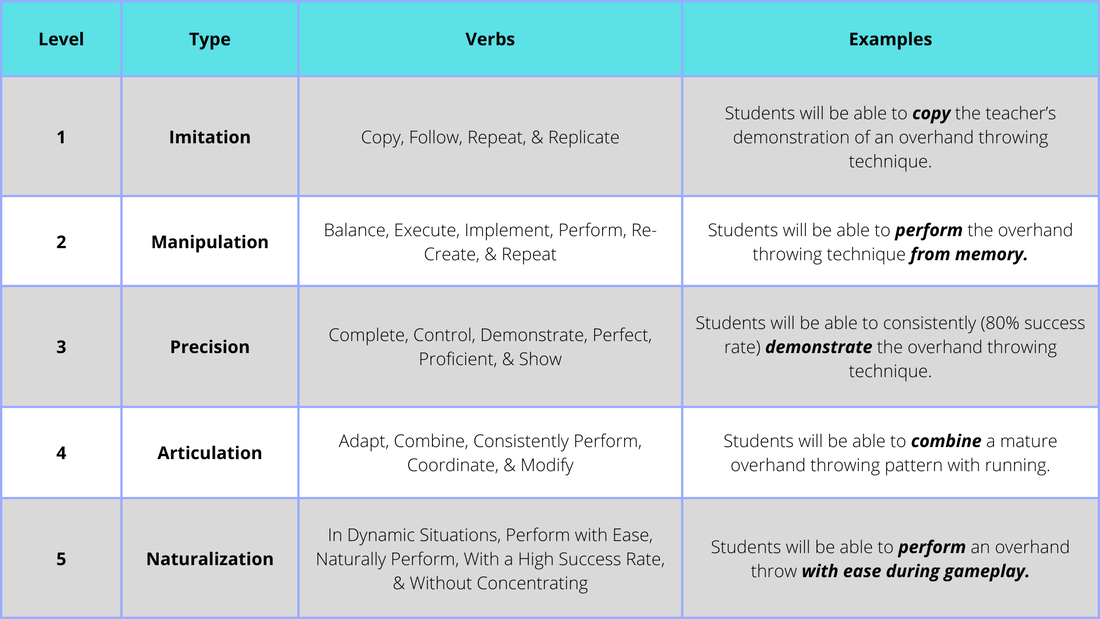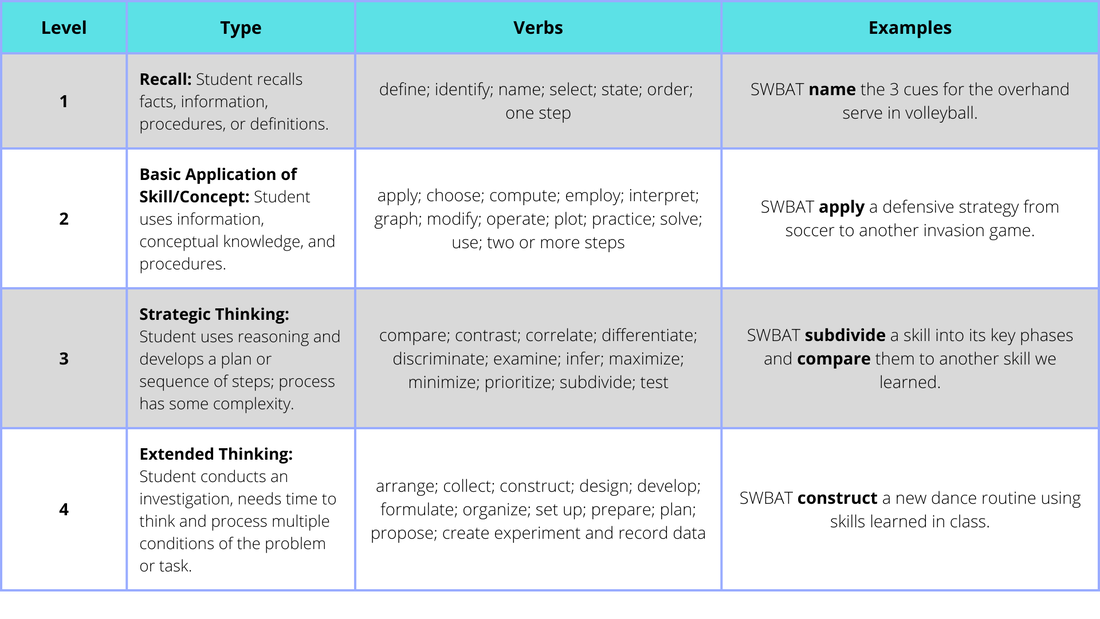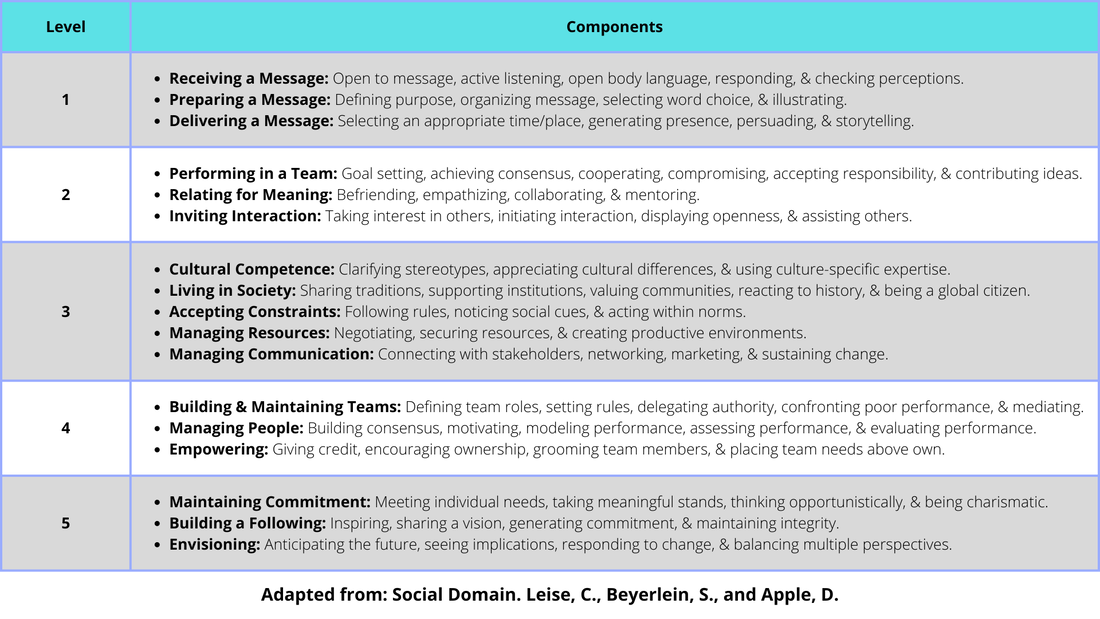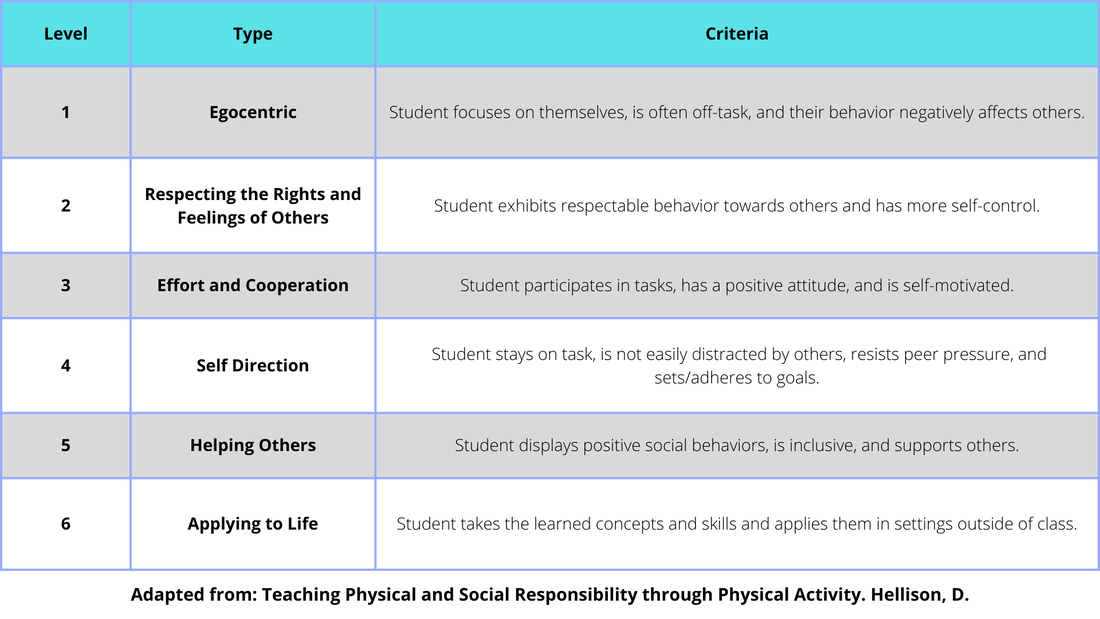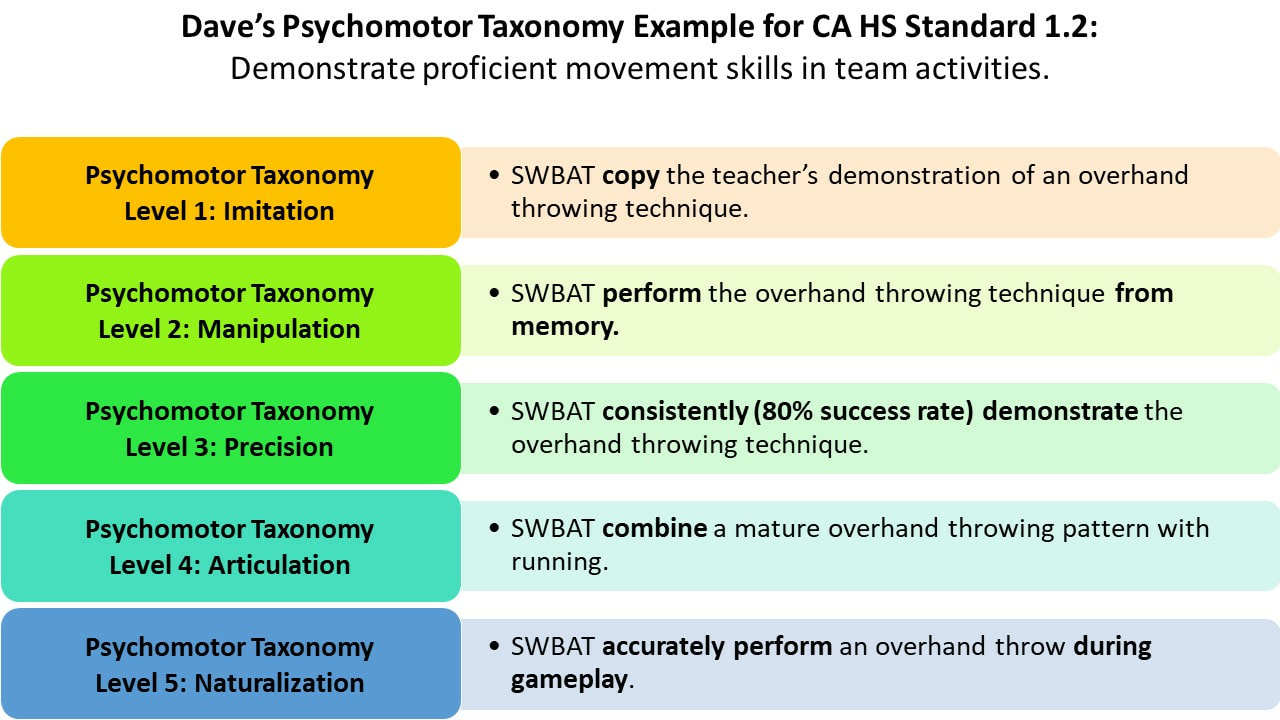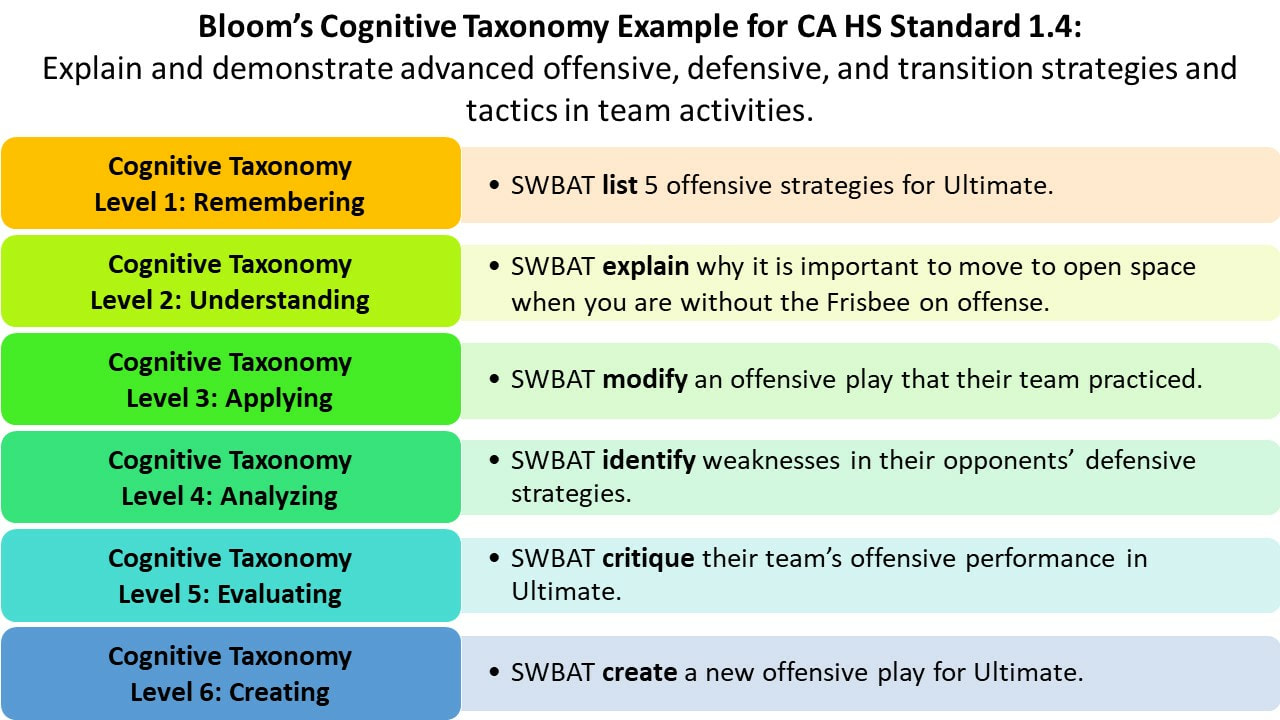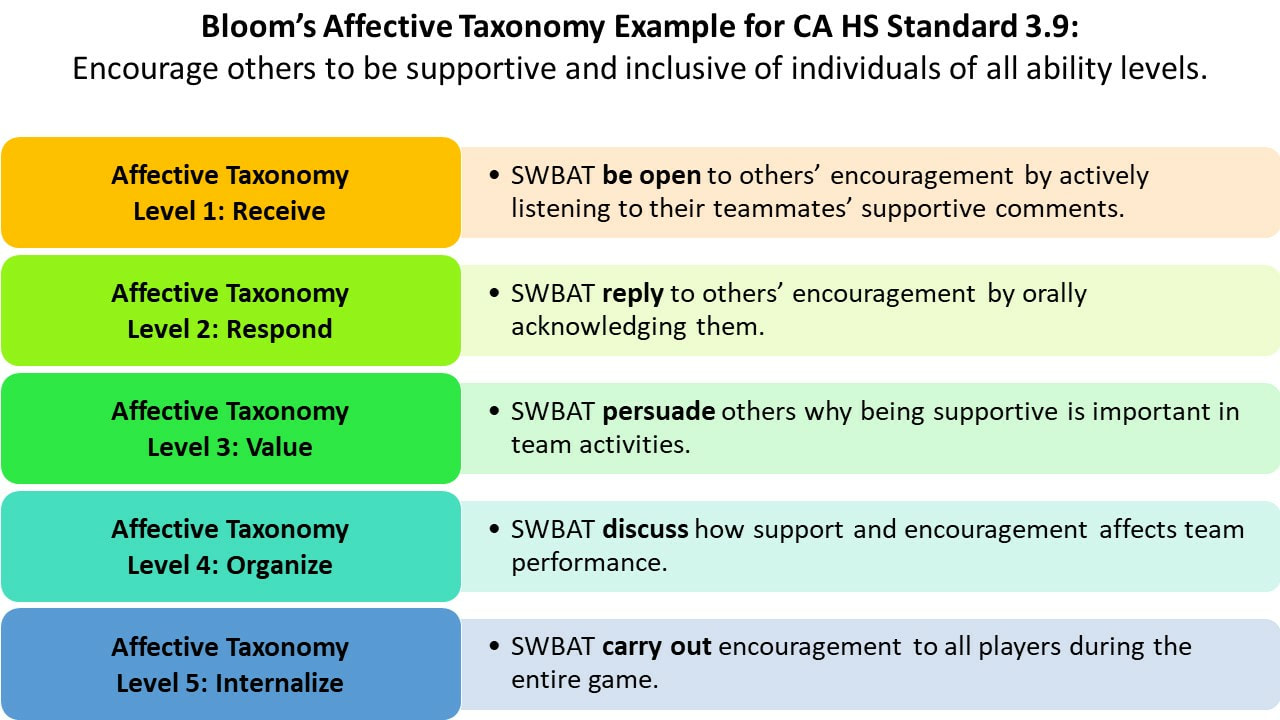Domains of Learning
Learning takes place in multiple domains and at various degrees of complexity: Cognitive, Psychomotor, and Affective. While these domains are widely accepted, there is support for the others listed on this page.
- Affective Domain: feelings, values, dispositions, attitudes.
- Cognitive Domain: knowledge and mental skills.
- Personal and Social Responsibility: behavior in/out of class.
- Psychomotor Domain: motor skills.
- Social Domain: teamwork, communication, leadership.
The purpose of the taxonomies below are to make it easier to sequence learning tasks in a logical order of difficulty.
For example, you would not ask students to judge the quality of a volleyball serve (level 5 of the cognitive domain) until they can describe the key cues for the serve (level 1 of the cognitive domain). Likewise, you would not expect students to be able to combine multiple psychomotor skills in game play (level 5 of the psychomotor domain) if they were unable to successfully repeat each skill in isolation (level 2 of the psychomotor domain).
For example, you would not ask students to judge the quality of a volleyball serve (level 5 of the cognitive domain) until they can describe the key cues for the serve (level 1 of the cognitive domain). Likewise, you would not expect students to be able to combine multiple psychomotor skills in game play (level 5 of the psychomotor domain) if they were unable to successfully repeat each skill in isolation (level 2 of the psychomotor domain).
our other webpages for Classroom Teachers
- Activities and Lessons: Compilation of websites that provide resources on physical education activities.
- Class Management: Our main page on class management. We also have Tools for Assessing Behavior and Techniques for Forming Groups.
- Domains of Learning: Example verbs and learning objectives for a variety of learning domain taxonomies.
- English Language Learners: Information on how to teach ELL students, regardless of the content area.
- Examples of How to Make Learning Active: Examples of combining other content areas with physical activity.
- Icebreakers and Teambuilding Videos: Name games, icebreakers, teambuilding, and conflict resolution activities. Directions are also available via PDF.
- Stress Management Techniques: Information and resources on easy stress management techniques for students.
